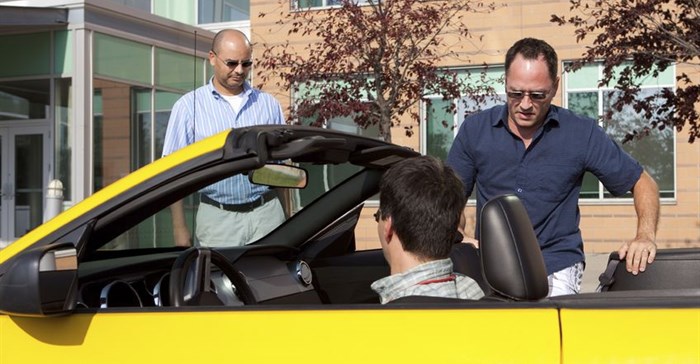71% of South Africans don't carpool, while 51% would consider doing so to save money. This is according to the findings of a new survey by financial services provider, MotorHappy, in which over 400 South African motorists shared their views on the transport arrangement that is particularly popular amongst American moms: carpooling.

©Paul Vasarhelyi via
123RFThe survey, which had an almost equal split between men and women, indicated that of the 29% of South Africans that do carpool, 49% do so for work and business purposes. Amongst the participants who answered "no” to whether they carpool or not, only 51% said they would consider doing so to save money.
“Fuel prices are constantly increasing, and new car sales have experienced double digit declines since March last year because South Africans are driving their cars for much longer,” says Kerry Cassel, MotorHappy managing director. “Based on this alone, one would think that many South Africans would consider driving to work with a co-worker, family member or friend in an attempt to cut costs.”
A second survey was also conducted on the company’s Facebook page, which echoed the sentiments of the first one. Amongst an audience of over 41,000 users, 91% of South Africans said that they don’t carpool. The majority of participants noted that they would only consider doing so if fuel prices continued to increase, or if they could find someone to carpool with.
Multiple benefits
“Carpooling is not only convenient and easy on the pocket, but catching a lift with someone also has many other benefits such as decreasing your carbon footprint (less cars on the road equals less pollution), you will get to know new people better and your health will benefit,” adds Kerry. “You will also inevitably stress less on the road if you’re not driving yourself to work every day, which will have a positive impact on your mental as well as your physical health.”
Even though South Africans don’t currently carpool nearly as much as one would expect them to given our financial climate, it doesn’t mean that it won’t take off in our country in the near future. App-based ridesharing giant, Uber, hinted in April that they are looking at launching UberPool into the South African market. By doing this, Uber predict that they could potentially cut Johannesburg’s traffic by almost a million cars, which would have a dramatic impact on the time Gauteng motorists spend sitting in traffic every day.
Different set of rules
“Motorists need to bear in mind that carpooling brings with it a different set of rules. For example, as the owner of the vehicle, you are not allowed to charge your passenger(s) money for driving with you – for that, you need a special licence. It thus makes practical sense to alternate who drives when, which means everybody benefits from the agreement,” concludes Kerry.
“If you are the owner of a carpool vehicle – or if you are planning on being one in the near future – it is also a good idea to relook at your motoring finance needs like a maintenance plan, roadside assistance or other value added products like tyre and rim cover. If you don’t invest in a maintenance plan, carpooling may end up costing you more in the long run as you are left with the inevitable wear-and-tear expenses. With more passengers to drive around, your car will also works much harder, which means it would need to go for a service more often, and it would also use more fuel. These facts are something which only 48% of our carpool survey participants were aware of.”










































